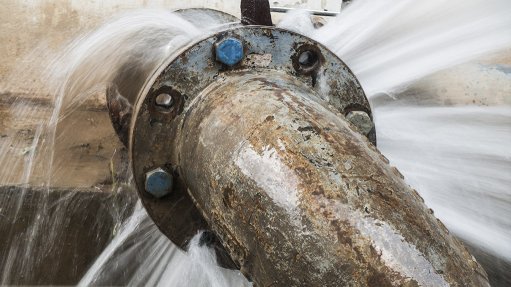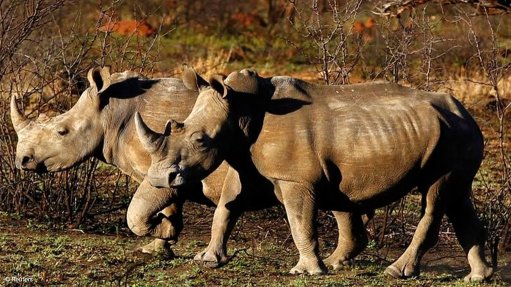Silver lining?
A couple of weeks back, I wrote about how, despite being thousands of kilometres away, the Russia-Ukraine conflict would hit African countries hard. But there could be a silver lining for those countries that are endowed with hydrocarbons.
First, the context: European Union (EU) member countries buy about 45% of their imported gas from Russia. Given the deepening alienation between the EU and Russia since the latter’s February 24 invasion of Ukraine, the bloc is in a hurry to lessen this outsized dependence on a single country – and a not-so-friendly one at that. Indeed, the EU announced last month that the EU would outline proposals by mid-May to phase out its reliance on Russian fossil fuels by 2027.
Collectively, European countries import 155-billion cubic metres of Russian natural gas each year. Some of this could be displaced by African gas in the not-too-distant future, with the key beneficiaries including the gas-flush countries of Nigeria, Angola, Senegal, Mauritania and Mozambique.
There is a caveat, though: money will be required to develop gas projects in these countries, and we are talking about top dollar here. Highlighting the challenge of inadequate finance for African oil and gas projects, African Energy Chamber head NJ Ayuk said in February that, for years, he had tried in vain to pitch African oil and gas projects to Western governments and companies. “I used to beg them to take my calls,” he lamented.
The reticence is attributable to the global push away from polluting fossil fuels and towards emerging clean energy sources. It’s for this reason that advocacy groups such as the African Energy Chamber have been calling for a pan-African energy bank to finance projects to harness the continent’s oil and gas reserves, estimated at 130-billion barrels and 15-trillion cubic metres respectively.
Whereas international investors have hitherto been loath to invest in African hydrocarbon projects, it appears an energy transition of its own kind has been under way in the EU since the Russian invasion. This is whereby European investors are warming to African gas as the bloc hurries to wean itself off imports from Russia.
Preliminary discussions concerning potential European importation of Africa gas are already under way, with EC climate action and energy spokesperson Tim McPhie having told The Washington Post last month: “When it comes to finding alternative gas supplies, the EU is in discussion with a very wide range of potential exporters, including a number of countries in Africa.” However, McPhie was at pains to explain that the EU sought to diversify its gas supplies in the short term, while retaining its long-term focus on boosting renewables and phasing out fossil fuels to meet its climate goals.
The projects that will likely benefit from the new ‘energy transition’ in Europe include the mooted $15-billion Trans-Saharan gas pipeline project. Recently resurrected by Algeria’s government, this project could export as much as 30-billion cubic metres of gas a year from Nigeria to Algeria through Niger and then on to Europe.
Of course, the success of this megaproject will hinge on security from Islamist militants along the Nigeria–Niger–Algeria corridor. Ditto the extraction of natural gas in northern Mozambique, where an insurgency forced French energy multinational TotalEnergie to suspend a multimillion-dollar natural gas project in April last year.
Meanwhile, the likelihood of European money flowing into African gas projects has improved considerably since Russian troops started pouring into Ukraine in late February, ostensibly to carry out a demilitarisation and de-Nazification operation. For example, whereas in the past potential European financiers would shun the African Energy Council, the situation is now different. “Right now, I think they have me on speed dial,” boasts the chamber’s Ayuk.
Article Enquiry
Email Article
Save Article
Feedback
To advertise email advertising@creamermedia.co.za or click here
Press Office
Announcements
What's On
Subscribe to improve your user experience...
Option 1 (equivalent of R125 a month):
Receive a weekly copy of Creamer Media's Engineering News & Mining Weekly magazine
(print copy for those in South Africa and e-magazine for those outside of South Africa)
Receive daily email newsletters
Access to full search results
Access archive of magazine back copies
Access to Projects in Progress
Access to ONE Research Report of your choice in PDF format
Option 2 (equivalent of R375 a month):
All benefits from Option 1
PLUS
Access to Creamer Media's Research Channel Africa for ALL Research Reports, in PDF format, on various industrial and mining sectors
including Electricity; Water; Energy Transition; Hydrogen; Roads, Rail and Ports; Coal; Gold; Platinum; Battery Metals; etc.
Already a subscriber?
Forgotten your password?
Receive weekly copy of Creamer Media's Engineering News & Mining Weekly magazine (print copy for those in South Africa and e-magazine for those outside of South Africa)
➕
Recieve daily email newsletters
➕
Access to full search results
➕
Access archive of magazine back copies
➕
Access to Projects in Progress
➕
Access to ONE Research Report of your choice in PDF format
RESEARCH CHANNEL AFRICA
R4500 (equivalent of R375 a month)
SUBSCRIBEAll benefits from Option 1
➕
Access to Creamer Media's Research Channel Africa for ALL Research Reports on various industrial and mining sectors, in PDF format, including on:
Electricity
➕
Water
➕
Energy Transition
➕
Hydrogen
➕
Roads, Rail and Ports
➕
Coal
➕
Gold
➕
Platinum
➕
Battery Metals
➕
etc.
Receive all benefits from Option 1 or Option 2 delivered to numerous people at your company
➕
Multiple User names and Passwords for simultaneous log-ins
➕
Intranet integration access to all in your organisation


















